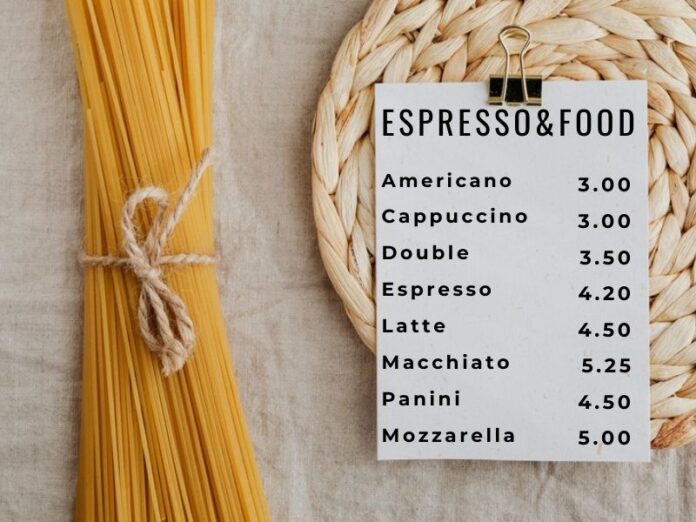Italian cuisine is a world-renowned treasure, captivating palates with its rich flavours and culinary traditions. One fascinating aspect of Italian food culture is the abundance of untranslatable words that have become cherished staples in the culinary world.
So, what are you waiting for? Let’s delve into why these delectable terms often remain unaltered in translation.
Firstly, Italian cuisine is deeply rooted in history and regional diversity. Each Italian region boasts its own unique culinary heritage, resulting in a plethora of distinct dishes and ingredients. Consequently, many Italian food words carry layers of cultural significance that simply cannot be fully captured in translation. For instance, the word ‘al dente,’ which refers to pasta cooked to a firm texture, embodies the Italian preference for perfectly cooked pasta—a concept that extends far beyond a mere translation of ‘to the tooth.’
Furthermore, Italian cooking emphasizes the use of fresh, seasonal ingredients and simple yet flavourful preparations. This emphasis on quality and simplicity is reflected in the language of its cuisine, where terms like ‘pomodoro’ (tomato) and ‘olio d’oliva’ (olive oil) evoke the essence of freshness and authenticity. Attempting to translate these words into English would not only lose their cultural nuance but also fail to convey the reverence Italians hold for their culinary heritage.
Moreover, many Italian food words have become widely adopted and recognized in the global culinary lexicon. From ‘cappuccino’ to ‘bruschetta,’ (the right pronunciation is brusketta!) these terms have transcended linguistic boundaries, becoming beloved fixtures in menus and kitchens worldwide. Their original Italian forms lend an air of authenticity and sophistication, enhancing the dining experience for both Italians and international food enthusiasts alike.

And sure enough, one significant factor contributing to the retention of Italian food words is the enduring influence of Italian immigrants and their descendants around the world.
In fact, as Italians settled in various countries, they brought with them not only their culinary traditions but also their language. Over time, Italian food words became integrated into the vernacular of their adopted homelands, enriching local cuisines and vocabularies. For example, terms like ‘mozzarella,’ ‘panini,’ and ‘gelato’ have become household names in countries far beyond Italy’s borders, underscoring the global appeal and universality of Italian cuisine.
Furthermore, the rise of culinary tourism has fuelled the popularity of Italian food words as international travelers seek authentic dining experiences. Whether wandering the cobblestone streets of Rome or exploring the vineyard-dotted hills of Tuscany, visitors are drawn to Italy’s gastronomic delights and the unique vocabulary that accompanies them. By preserving Italian food words in their original form, restaurateurs and food producers cater to the growing demand for authenticity and cultural immersion in the global dining scene.
Then, the globalization of the food industry has led to increased awareness and appreciation of Italian culinary traditions. As consumers become more discerning about the origins and quality of their food, they seek out products bearing Italian designations of origin such as DOC (Denominazione di Origine Controllata) and DOP (Denominazione di Origine Protetta). These labels not only guarantee the authenticity and provenance of Italian food products but also serve as a testament to the meticulous standards upheld by Italian producers. By retaining Italian food words, consumers are reminded of the heritage and authenticity embedded in each bite, fostering a deeper connection to the land, people, and traditions behind the food.
Additionally, the internet and social media have played an important role in popularizing Italian food words and fostering a global community of food enthusiasts. Platforms like Instagram and Pinterest are awash with mouthwatering images of pasta dishes, pizza pies, and decadent desserts, accompanied by hashtags like #italianfood and #foodporn. As users share their culinary creations and culinary adventures, they perpetuate the allure of Italian cuisine and the linguistic charm of its untranslatable words.

Last but not least, the sheer beauty and musicality of the Italian language contribute to the reluctance to translate certain food words. Italian is renowned for its melodious rhythm and expressive intonation, elevating even the most mundane conversations to poetic heights. When it comes to food, Italian words roll off the tongue like a symphony, evoking sensory images of sizzling pans, fragrant herbs, and sumptuous flavours. Attempting to replicate this linguistic magic in English would be akin to dimming the brilliance of a masterpiece.
Think of the words ‘pasta al pesto‘: don’t they sound just divine?
So, the preservation of Italian food words in their original form also serves as a tribute to the artisans and producers who uphold Italy’s culinary traditions.
From Parmigiano-Reggiano to Prosciutto di Parma, these appellations denote not just products but also centuries-old craftsmanship and dedication to quality. By retaining these names in Italian, consumers are reminded of the rich heritage and meticulous craftsmanship behind each culinary delight.
As a matter of fact, the decision to leave many Italian food words untranslated in English is a testament to the depth and complexity of Italian cuisine. These words serve as cultural ambassadors, inviting us to savour not just the flavours but also the history, craftsmanship, and passion that define Italian gastronomy. As we indulge in dishes like risotto, tiramisu, and espresso, let us embrace the untranslatable beauty of Italian food words, celebrate the rich tapestry of flavours they represent and…
Buon appetito!
If you would like to discover some delicious original recipes or the secrets of real olive oil, please also visit our Food column-you will be delighted!
Ig – @fairness_mag


